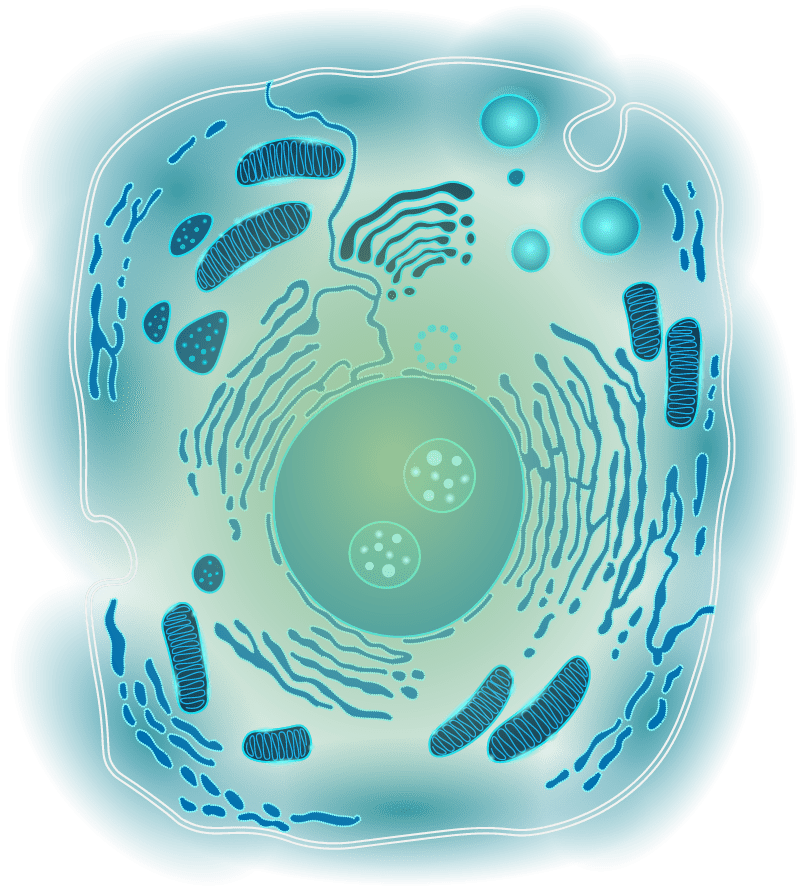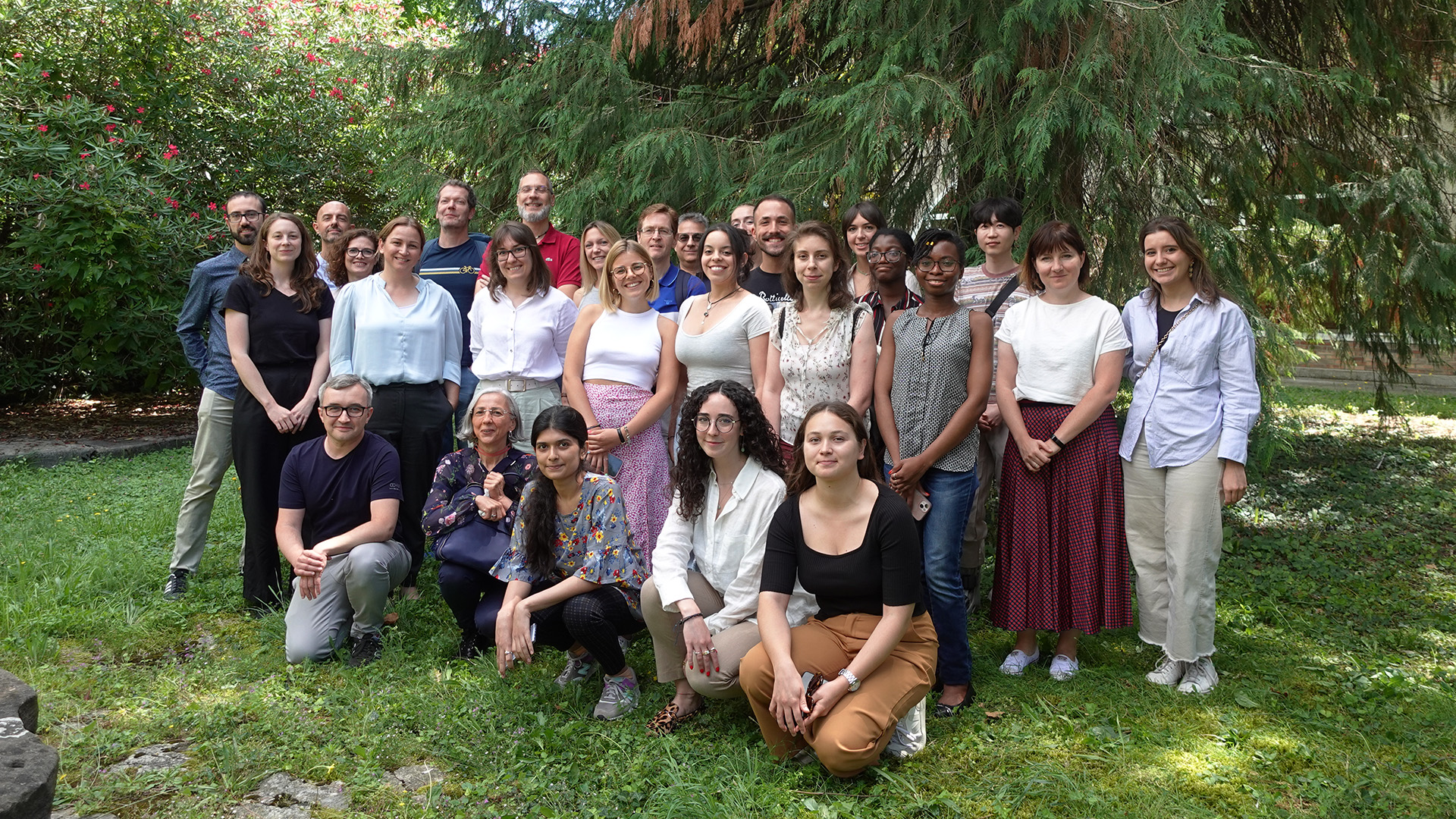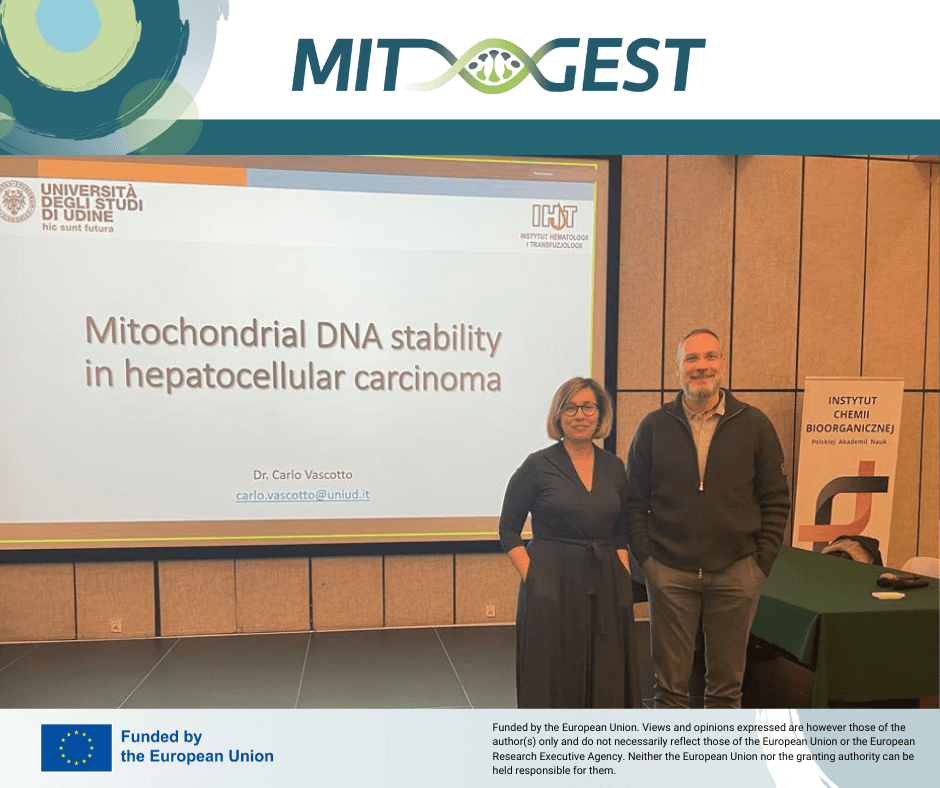Quality Control of the Mitochondrial Gene Expression System in Health and Disease
MITGEST is a Doctoral Network (DN) funded within the framework of the Marie Skłodowska-Curie Actions (MSCA) and coordinated by the International Institute of Molecular Mechanisms and Machines of the Polish Academy of Sciences (IMol). MITGEST unites world-class academic excellence in mtDNA maintenance and expression with private sector expertise in nucleic acid chemistry and the development of mitochondrial therapeutics. As the first research training programme in this field, we follow a fully integrated approach. Our 11 doctoral candidates (DC) will elucidate how mtDNA is maintained and expressed and support the development of new methods to analyse RNA and DNA metabolism in mitochondria. These advances will complement and facilitate/enhance innovative treatment strategies and experimental medicine studies designed to mitigate mitochondrial dysfunction in a range of human diseases.
Why is MITGEST important?
Mitochondria are organelles present in nearly every cell in the body. Their job is to process oxygen and convert substances from the foods we eat into energy and are thus pivotal players in cellular metabolism. Central to mitochondrial biology is the DNA in the organelle (mtDNA): its maintenance, correct RNA processing, and efficient translation are all essential and must be coordinated to ensure proper mitochondrial function.
Mitochondrial dysfunction is the hallmark of a large group of rare genetic disorders, so-called “mitochondrial diseases”. These are chronic (long-term), frequently fatal, disorders that occur when mitochondria fail to produce enough energy for the body to function properly. Mitochondrial diseases can be present at birth, but can also occur at any age as observed in common diseases such as diabetes, heart disease, neurodegenerative diseases, cancer and the normal ageing process. Treatment options are still very limited and mostly involve symptom management.
A deep understanding of the mitochondrial gene expression system and new methods are urgently needed to develop treatments for the full panoply of mitochondrial disorders.
News
MITGEST first midterm meeting was a success On November 29, 2023, for the first time,...
Creating a more equitable future in research: Gender equality workshop for our MITGEST Doctoral Candidates...
We’re thrilled to announce the latest developments in the MITGEST project as we welcome two...
MITGEST network first training week welcomed Doctoral Candidates Amidst an atmosphere of camaraderie and intellectual...
We are thrilled to announce the first network meeting of the MITGEST project! MITGEST, a...
On 28 April 2023, Dr. Carlo Vascotto, the project coordinator of MITGEST, delivered an enlightening...
We are thrilled to announce the successful launch of the first online meeting of the...
Recruitment Kicked off on October 1st, the MITGEST project is well on track with its...
The MITGEST project is officially kicked off! On November 2, 2022, the MITGEST consortium got...
Innovative technologies and integrated methodologies in the field of mitochondrial DNA (mtDNA) and its gene...













